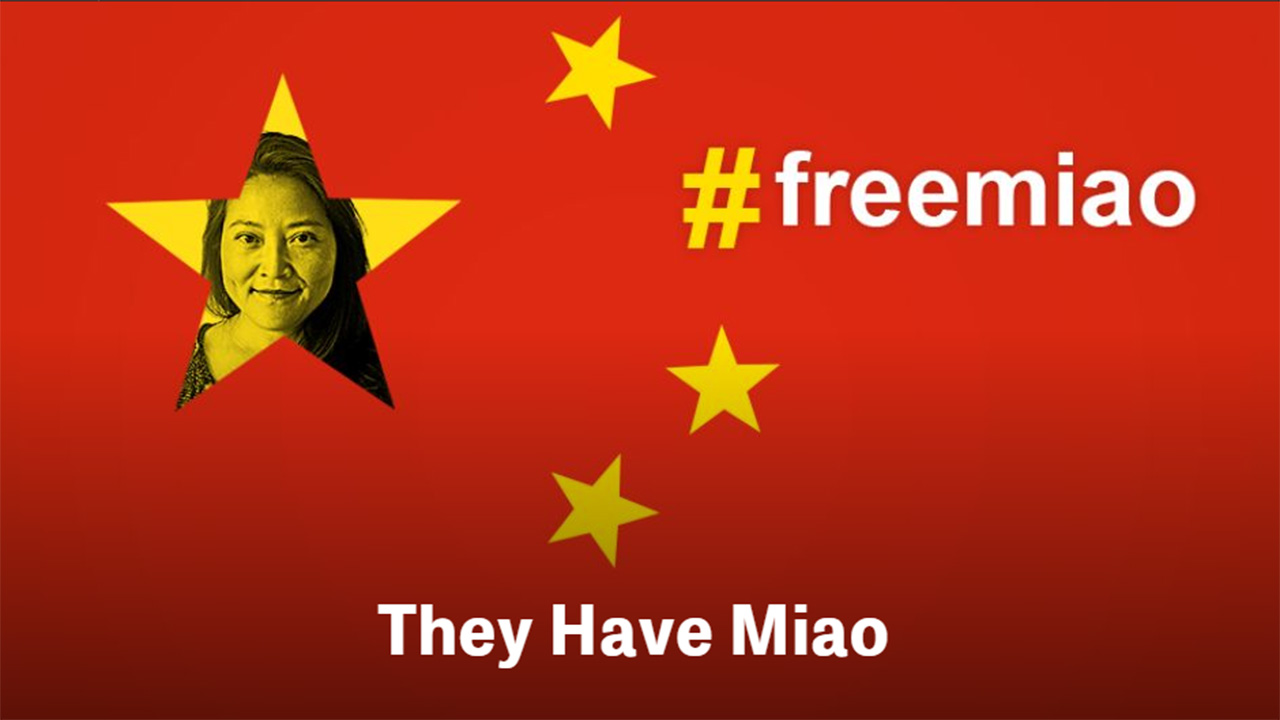German newspaper DIE ZEIT has published a troubling account by its Beijing correspondent Angela Köckritz, in which Köckritz reveals her ongoing struggles with Chinese authorities following the arrest and subsequent detainment of her assistant, Zhang Miao. The arrest occurred as the two had been covering the Occupy Central protests in Hong Kong in early October, but DIE ZEIT held off on publishing the story because of concerns over Miao’s release. The paper stated:
We have held off from publishing this story for a long time: A Chinese woman working as an assistant to DIE ZEIT has been detained for more than 12 weeks. We didn’t want to complicate diplomatic efforts being made to secure her release. But since these have yet to yield any result, we consider it necessary to make public now the fate of our colleague Zhang Miao.
Zhang Miao, a Chinese citizen educated in Germany, was arrested on October 2nd on suspicion of “inciting a public disturbance” while attempting to enter a poetry reading in support of the Occupy Central protests in Hong Kong. Köckritz explains, “Law enforcement likes to use this criminal offence whenever they take aim at nonconformists.” Miao had been targeted by police after she and a group of her peers had a heated exchange with police officers about the arrest of a poet that is an acquaintance of theirs.
Köckritz’s article, a step-by-step recollection of her attempts to gain information about Miao’s whereabouts and well-being, portrays the Chinese authorities as being deeply insecure about their public appearance as they boldly tout their country’s “Perfect Rule of Law,” while simultaneously conducting themselves in a seemingly lawless authoritarian manner. Authorities failed to properly inform Miao’s family of her arrest and did not grant them visitations as required by law. They subjected Köckritz to all manner of not-so-subtle threats and intimidation. At one point, agents thought she was a spy.
In one passage, Köckritz likens the Chinese government’s heavy handed approach to perceived dissidents as being like cancer:
During my four years as a correspondent, I’ve often had to write about justice and injustice in China. I’ve attended press conferences at which government officials have told us that China is a country based on the rule of law, or what’s known in specialist circles as a Rechtsstaat. I’ve spoken to farmers who’ve been expropriated, who’ve tried to seek redress but failed, and instead been beaten and carted off to a black jail for supposedly fomenting unrest. I’ve interviewed civil rights activists who’ve sought, with infinite tenacity, to make China into what it pretends to be: a country based on the rule of law. I’ve visited dissidents who’ve been threatened and then vanished one day. Flipping through my telephone book, I see the names of many who are simply gone. When I mentioned this to a Chinese acquaintance, he shrugged his shoulders. Those kind of things happened to dissidents, but not to normal people, he said. Still, after a series of unfortunate circumstances, even the most guileless person can run into trouble with the justice system and security apparatus. It’s like with cancer: Everyone thinks they won’t get it. It’s always other people who are put in prison.
In the wake of DIE ZEIT publishing this story, activists throughout the world have launched the #FreeMiao social media campaign in the hopes of pressuring the Chinese government to release Miao, as well as to bring greater transparency to her case and awareness to China’s concerning human rights record.


